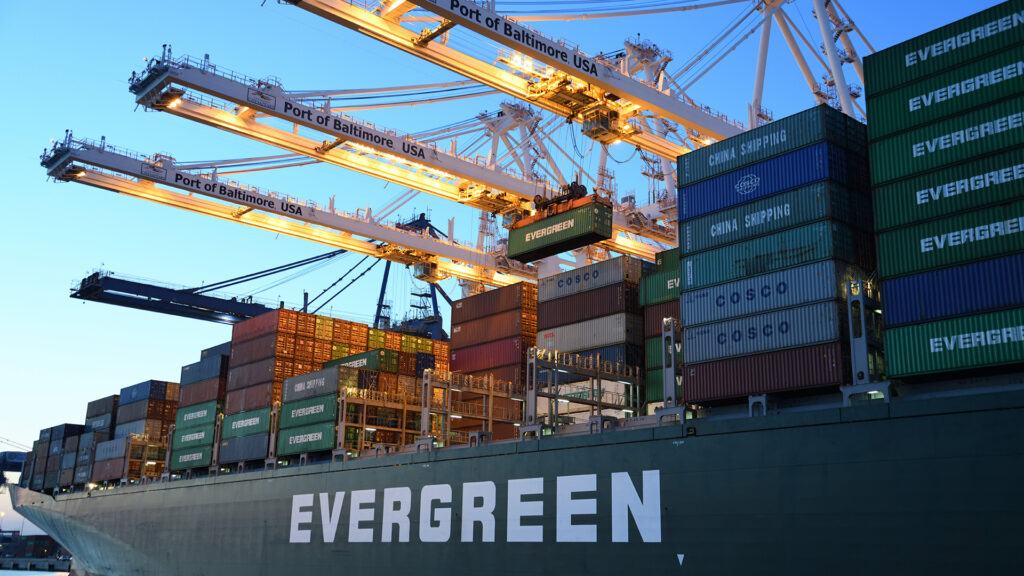In the intricate world of international trade, one of the most important and commonly used terms is FOB Incoterms (Free On Board). Navigating this world and all the associated Incoterms can be a daunting task, particularly when it comes to understanding the responsibilities and obligations under various shipping terms. This article aims to demystify FOB Incoterms, providing a comprehensive overview of their rules, responsibilities, and implications in international trade.
Interested in the other incoterms? Find out more about the 4 sea incoterms.
Introduction to FOB Incoterms
Originating in the days of sailing ships, FOB Incoterms have evolved significantly over time. Under the Incoterms® 2020 rules, the seller is responsible for placing the goods on board the vessel nominated by the buyer. Once the goods are on board, the risk of loss or damage to the goods transfers to the buyer. Notably, the term “on board” no longer signifies placing the goods “across the ship’s rail” as it did historically.
History and Evolution of FOB Incoterms
The term “Free on Board” has been in use since the days of sailing ships and was included in the first version of Incoterms® in 1936. The concept has remained consistent through later versions, although the specifics of cost and risk division have evolved. Particularly notable is the removal of the ship’s rail concept in the 2010 version, aligning the cost and risks with delivery.
Seller and Buyer Obligations
In FOB Incoterms, the seller’s responsibilities include providing the goods and their commercial invoice as required by the contract, alongside any other evidence of conformity. Delivery is achieved by placing the goods on board the vessel nominated by the buyer within the agreed timeframe. The buyer, in turn, assumes all risks of loss or damage to the goods once delivered by the seller.
Key Considerations in FOB Incoterms
This section explores the essential elements to consider when dealing with FOB Incoterms, including risk transfer, responsibilities, and cost implications for both buyers and sellers.
Transfer of Risk and Responsibilities
A critical aspect of FOB Incoterms is the transfer of risk from the seller to the buyer. The seller bears all risks of loss or damage to the goods until they have been delivered, while the buyer assumes these risks once delivery is complete. This transfer of risk is a pivotal point in the transaction.
Carriage and Insurance
Under FOB Incoterms, the seller has no obligation to contract for carriage. If the buyer requests, the seller must provide information needed to arrange carriage at the buyer’s risk and cost. As for insurance, while the seller does not have the obligation beyond the delivery point, they must provide information for the buyer to arrange insurance if requested.
Allocation of Costs
Cost allocation is another vital component. The seller must pay all costs until the goods have been delivered, including costs involved in providing proof of delivery. The buyer, conversely, is responsible for costs relating to the goods from the point of delivery and must reimburse any costs incurred by the seller in assisting with loading, carriage, and import formalities.
Practical Applications of FOB Incoterms
This section looks at how FOB Incoterms are applied in real-world scenarios, highlighting their suitability for different types of shipments and the practicalities of their use in international trade.
Container Shipments
FOB is often misapplied to container shipments. It is inappropriate for container shipments since these involve delivering goods to a carrier at a location away from the port. In such situations, FCA (Free Carrier) is a more suitable term.
Advantages and Disadvantages
FOB offers control over the cargo and cost-saving opportunities for the buyer. For the seller, the responsibility ends once the cargo is loaded onto the vessel. However, FOB can be complex for new buyers, and there are situations where the buyer might have to cover costs before the goods are on board the vessel. The seller must also arrange and pay for export permits and transit.
Conclusion: Balancing Responsibilities and Risks
FOB Incoterms offer a balanced approach, sharing responsibilities and risks between the seller and the buyer. While the seller retains ownership and responsibility for the goods until they are loaded onto a shipping vessel, the buyer assumes liability from that point onwards.
How John Pipe International Can Assist
At John Pipe International, we understand the complexities of FOB Incoterms and offer expert guidance and services to navigate these challenges. Whether you are shipping dangerous goods, require bespoke packing solutions, or need assistance with export documentation, our team is equipped to handle your export packing and freight needs with precision and care. Trust us to manage the logistics of your project efficiently, ensuring your goods are delivered on time and in compliance with all relevant regulations.
For expert assistance in managing your international shipping needs under FOB Incoterms, contact John Pipe International, where our experience and dedication to quality service make us your ideal partner in export packing and freight solutions.
FAQs
Q: What is fob incoterms meaning?
A: Free On Board (FOB) is an Incoterm used in international trade where the seller is responsible for delivering the goods past the ship’s rail at the designated port of shipment.
Q: How do Free On Board (FOB) Incoterms affect my shipping responsibilities?
A: Under Free On Board (FOB) Incoterms, the seller is responsible for the transportation of goods to the port of shipment and for loading costs.
Q: What should exporters know about Export FOB terms?
A: Export FOB terms indicate that the seller is responsible for delivering the goods to the specified port of shipment and for the loading costs, but not for the shipping or insurance beyond the port.

